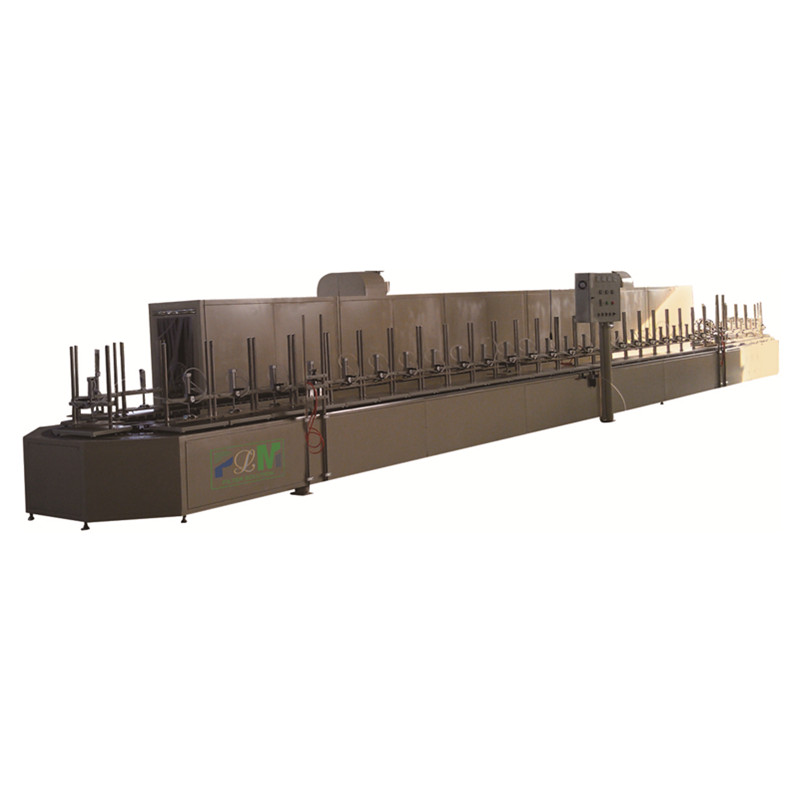Jul . 28, 2024 01:03 Back to list
Effective Solutions for Enhancing Air Quality with Premium Industrial Air Filtration Systems
The Importance of High-Quality Industrial Air Filters
In the modern industrial landscape, maintaining clean air quality is paramount for ensuring both the health of workers and the efficiency of operations. High-quality industrial air filters play a critical role in achieving this objective. By effectively removing contaminants from the air, these filters not only safeguard the health of employees but also protect equipment, enhance productivity, and comply with environmental regulations.
Understanding Industrial Air Quality
Industrial processes often generate a significant amount of airborne particles, gases, and volatile organic compounds (VOCs). Whether in manufacturing, chemical processing, or food production, the air can become laden with pollutants that can pose serious health risks. Bad air quality can lead to respiratory problems, decreased productivity, and increased absenteeism among workers. Consequently, industries must prioritize air filtration systems to mitigate these risks.
Benefits of High-Quality Air Filters
1. Health and Safety High-quality air filters are designed to capture a wide range of particulates, including dust, pollen, mold spores, and bacteria. By maintaining a cleaner air environment, these filters significantly reduce the likelihood of health issues related to poor air quality, thus ensuring a safer workplace for employees.
2. Equipment Longevity Airborne contaminants do not only affect human health but can also damage machinery and equipment. Dust and particulate matter can lead to wear and tear, causing breakdowns and increased maintenance costs. High-quality filters protect machinery by preventing pollutants from entering production lines and equipment, ultimately extending their service life and reducing downtime.
3. Regulatory Compliance Many industries are subject to strict air quality regulations aimed at reducing pollution and protecting public health. Installing high-quality air filters can help companies comply with these regulations, avoiding potential fines and ensuring that they contribute positively to environmental conservation.
4. Enhanced Efficiency When air filters are effective at capturing pollutants, the efficiency of heating, ventilation, and air conditioning (HVAC) systems improves. Clean filters allow for better airflow and temperature control, leading to energy savings. An efficiently running HVAC system not only enhances comfort for employees but also lowers energy costs, improving the bottom line.
high quality industrial air filter

Choosing the Right Air Filter
Selecting the right high-quality industrial air filter involves considering several factors
- Filter Material Different materials offer various levels of filtration efficiency. HEPA (High-Efficiency Particulate Air) filters, for instance, can capture 99.97% of particles that are 0.3 microns in diameter or larger, making them an excellent choice for critical applications.
- Dust Holding Capacity Filters with higher dust holding capacity can last longer before needing replacement, reducing maintenance efforts and costs.
- Airflow Resistance It is essential to choose filters that balance efficiency with minimal airflow resistance. High resistance can strain the HVAC system, negating some of the benefits gained from improved air quality.
- Specific Applications Different industries have unique air quality challenges. For example, pharmaceutical companies may require ultra-clean environments, whereas workshops may need filters that capture larger particles. Hence, understanding the specific needs of an operation is essential.
Conclusion
Investing in high-quality industrial air filters is not merely a regulatory requirement but a sound business decision. The benefits of improving air quality—protecting employee health, prolonging equipment lifespan, ensuring compliance, and enhancing operational efficiency—can lead to substantial gains. As industries continue to evolve, prioritizing clean air will not only be essential for operational success but also for fostering a sustainable future. The choice of the right air filtration system truly matters in maintaining a healthy, efficient industrial environment.
-
PLAB-6 A B Two Compounds Filter End Cap Gluing Machine - Hebei Filter Man | Precision Adhesive Application, Efficient Production
NewsAug.15,2025
-
PLAB-6 A B Two Compounds Filter End Cap Gluing Machine-Hebei Filter Man
NewsAug.15,2025
-
PLAB-6 A/B Two Compounds Filter End Cap Gluing Machine - Hebei Filter Man
NewsAug.15,2025
-
Premium Active Carbon Air Filter for Purifiers - Odor & VOC Removal
NewsAug.15,2025
-
PLAB-6 A B Filter Gluing Machine - Hebei Filter Man
NewsAug.14,2025
-
PLAB-6 A B Two Compounds Filter End Cap Gluing Machine-Hebei Filter Man Automotive Parts Trading Co., Ltd.|Adjustable Speed&Step Motor Control
NewsAug.14,2025
